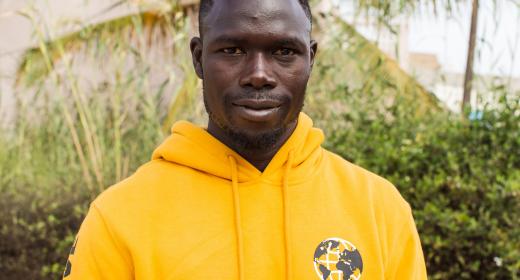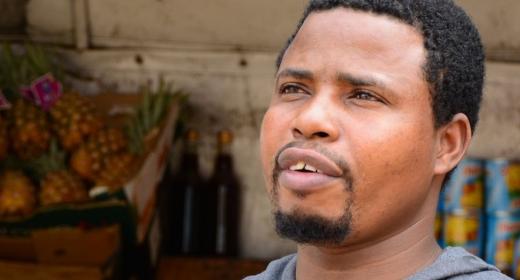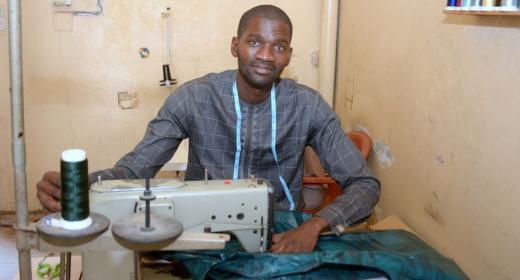People from Thiaroye sur Mer in Senegal often die in an attempt to reach Europe by sea. A women’s collective warns against irregular migration. It tells people about the alternatives offered by professional development.
Professional development in Senegal: the women of Thiaroye sur Mer

This link opens a YouTube video. Please note the data protection regulations vaid for this site.
ConfirmProfessional development in Senegal: the women of Thiaroye sur Mer
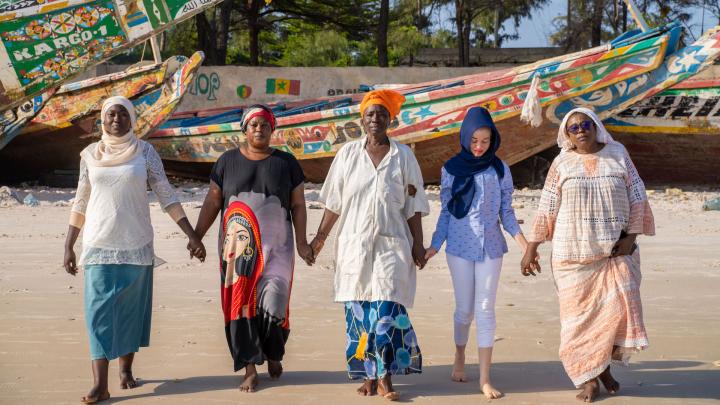
Professional development leads to better jobs
Thiaroye sur Mer is a suburb of Dakar, the Senegalese capital. More and more people are setting off from there to head for Europe. Most of them are young people wanting to reach the Canary Islands, which belong to Spain, in overcrowded boats. They’re hoping for a better life, but many of them drown in the sea during the dangerous crossing. Others disappear without any further sign of life. Family members and friends are simply left with their grief. They often find it difficult to keep going and stay optimistic.
“I lost my own son. I’d pinned all my hopes on him. That really hurts”, says Yayi Bayam Diouf from Thiaroye sur Mer. After her loss in 2007, this 60-year-old fisherwoman set up the Collectif des femmes pour la lutte contre l'émigration clandestine (COFLEC) – a women’s collective. They act jointly to combat irregular migration. They do this through education, professional development designed to create better job opportunities and a great deal of mutual support. “I firmly believe that there’s strength in unity. By coming together we can comfort one another. And we raise awareness of our suffering. This means we can achieve more and show young people a different way forward”, she says. The collective helps women and young people to earn a living for themselves.
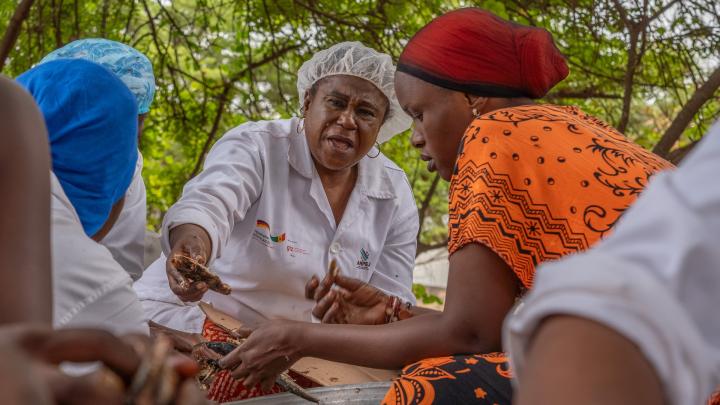
Successful self-employment in Senegal
The route by sea is often a blind alley that leads to death, an asylum centre or deportation back to the country of origin. Many of the women have experienced this themselves. That’s why they’re pleading with parents not to urge their children to emigrate, or to encourage this decision by providing money. “The women in our country are severely affected by their children’s emigration. They make sacrifices for their children, and then again for their departures. They’re respected by everyone if this succeeds”, Diouf explains.
Relatives accept that the children are usually living in unsafe conditions in Europe. Because they aren’t permitted to work or receive training without legal entry documents. “The main concern for these relatives is that their children send money home. But it’s the fathers who are collecting this money from the bank or post office – not the mothers”, says Diouf. The women then have little say in how it’s spent. The collective is therefore committed to ensuring that women are able to find work for themselves in Senegal, rather than being reliant on money sent by their children who’ve left the country.
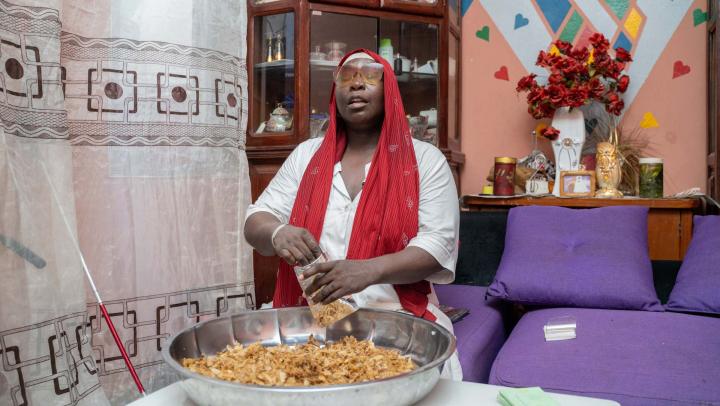
“In our country, success is often equated with emigration”, says Yayi Bayam Diouf. “But we also have opportunities to realise our dreams here in Senegal.” She and her women’s collective want to show young people the right way to do this: how they can use professional development to emigrate on a legal basis or how they can contribute to the development of their own country.
Working in Senegal: strengthening the weakest link
COFLEC offers professional development courses to women who have lost relatives at sea. This involves the conscious inclusion of marginalised groups, such as women with disabilities and women with albinism. Diouf’s collective is collaborating with various partners to do this. The Senegalese-German Centre for Jobs, Migration and Reintegration (CSAEM) set up a professional development programme for 125 women in 2022. “The staff at the centre came to visit us to get an exact understanding of our problems on the ground and therefore provide us with targeted solutions. They asked us in detail what we wanted before offering the vocational training programme”, Diouf recalls.
The women in the group were given 10 days of training. Some of them learned how to grow vegetables in raised beds. Others improved their skills in processing fish and dairy products. And others learned how to process local cereals, vegetables and fruits into spices and dry products. One group focused on producing packaging from biodegradable paper.
The women can use what they learned to become self-employed, expand their product range, attract customers and therefore increase their income. They’re also passing on their new knowledge to other women. As a next step, the collective wants to set up a cooperative. They want to sell the participants' products (such as cheese, salad, juices, spices and dried fish) at the markets in the area.
Diouf explains that the women’s collective is also interested in creating work as a refuge for women and young people. Work tends to distract from grief, or from plans to leave the country. Many of the participants stress that getting together during the 10-day professional development was a form of therapy. It did them good to build something together and look to the future.
As of: 03/2023
This text is written in simple language to ensure that it’s easy for everyone to understand.

